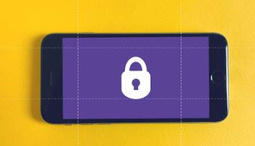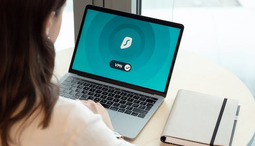- On
- 18 Jul 2022
- Reading time
- 4 minutes
A VPN can benefit both large corporations and individuals. Whether you’re using public WiFi for playing games, experiencing the fastest payout online casino nz, surfing through social media, or simply browsing Netflix, all of these activities can be done more securely with a VPN.
It is simple to use, affordable, and integral to your smartphone and desktop setup. In addition, an antivirus or firewall solution should be installed to ensure that every second you spend online is absolutely secure.
VPN software safeguards your data by concealing your device's IP address, encrypting it, and directing it across private networks to servers in distant states or other nations. As a result, it conceals your online identity, allowing you to access the Internet safely and anonymously.
Why Do You Require a VPN?
Now that you comprehend what a VPN is, let's look more closely at why you might need one:
1. Public WiFi Security
Public WiFi is handy, but it compromises security. Someone may monitor your online behavior when reading emails at a coffee house or looking through social networks at the airport.
Using a VPN safeguards your data when connected to other networks, protecting financial information, passwords, and sensitive information from malicious hackers.
2. Internet Service Provider Data Privacy
On a private WiFi network, you are much less likely to be targeted by outsiders than on a public network. Your information, however, remains vulnerable.
Your ISP or broadband internet provider, for which you pay a monthly fee for WiFi, can access all of your web traffic. Your internet service provider may know what, when, and how you surf.
Even if you use "incognito" browsing mode, this data can be gathered and sold to marketers. It can be harmful in the hands of the wrong people in the event of a security breach. Hence, a VPN can assist you in masking your IP address.
3. Data Protection from Services and Apps You Use
Your internet service provider isn't the only possible risk you've carried into your home. Tragically, several of the popular apps and online services, most particularly Facebook, have been criticized for how they have utilized their consumers' data.
A VPN prevents websites and apps from associating your actions with your computer's IP address. It can also limit the gathering of your geographic information and browsing history.
4. Secure Chat
Do you wish to have your online discussions eavesdropped on? Although some messaging applications, such as WhatsApp, have encryption, voice-over-IP (VOIP) applications don't have such features.
Fortunately, a VPN can handle this. Utilizing your VPN when using chatting apps like Skype or Google Meet ensures that online communication remains between you and your acquaintance.
It is significant to mention that any speed restrictions imposed by the VPN may lead Skype to discard calls that it regards as being of "poor" quality. This occurred to me lately, so unless you're discussing something sensitive, it's better to leave your VPN turned off for Skype talks.
5. Government's Data Privacy
In 2013, Edward Snowden initially disclosed that a global network was selling its customers' telephone and internet data to agencies. People have become more aware of the various methods through which the government monitors and collects personal data.
If you are concerned about government abuse, a VPN is a reasonable investment in data protection.
6. Accessibility to Content Anywhere
While a streaming network may disapprove of your use of a VPN to watch an episode in a region where the content isn't available, this VPN utilization isn't technically illegal. It provides a valuable solution to content limitations.
VPNs mask your geolocation, making it appear as if you are online from somewhere else. This implies you can watch The Good Doctor even if it isn't available in your area.
7. Remote Workplace Security
One advantage of a VPN is its strong encryption capabilities. Encryption, or converting data into a coded format that obscures its significance, helps keep private information secure.
Suppose you are considering purchasing a VPN for your business. In that case, one advantage is that employees can connect to your workplace network and view confidential data on their gadgets while away from the workplace.
As remote work appears to be a potential shift, a VPN is a worthwhile investment to keep sensitive information secure off-site.
8. Compatibility with a Wide Range of Smart Devices
While most of us may initially try a VPN on a corporate-based laptop, many VPN providers will secure your phones, iPads, and personal computers.
Each VPN service may provide various protection options and the capacity to cover multiple devices and offer several solutions that assist in making you safe on many devices.
9. Smart Investing
If you are set to do some homework, a VPN can lead to significant savings by disguising your location. Many organizations, including premium services and airlines, provide the same perks or benefits at varying costs. You can save significantly if you alter your site to one where services are affordable.
Notably, using a reputed VPN service rather than a free VPN provider is critical. Free VPNs should be avoided as they can misuse your private data or subject it to cyber threats.
Final Words
Finally, a VPN will be an essential and valuable tool in 2022. It safeguards your data and keeps it from falling into the wrong hands of those who could use it against you. This is most visible in targeted marketing and raises the cost of particular things based on how many times you've viewed the page.
With a VPN, you'll always get the best deal, and your private details and browsing data will be safe.
It also eliminates geo-restrictions on geo-blocked material, such as Hulu or BBC. Another advantage is that it operates on portable devices and safeguards your connection when using open WiFi. It is recommended to use a reputed VPN while browsing the web.



